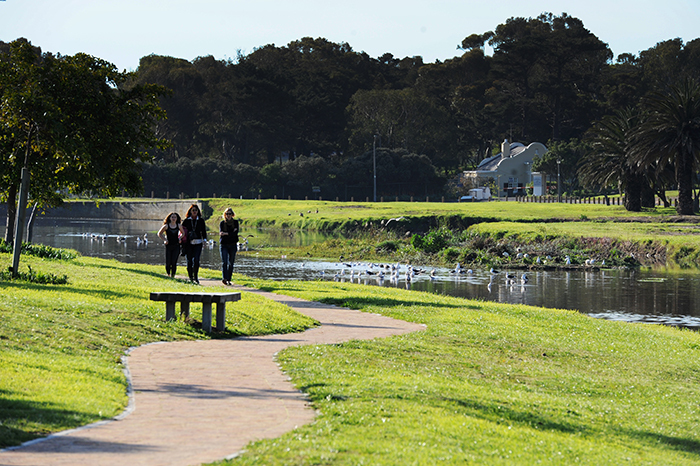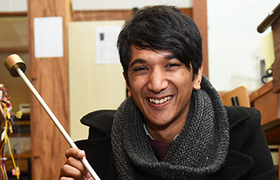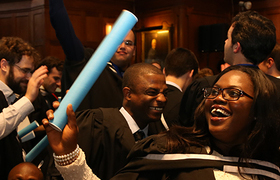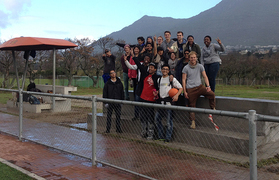Creating solutions: Water
28 September 2015
Not only do South Africans face the prospect of water shortages, but with ageing and insufficient water infrastructure, the spectre of substandard water quality is also a very real prospect. UCT engineers are at the forefront of research and programmes to address this looming crisis.
Last year a Water Research Commission study found that at least a third of water in distribution systems is being lost through leaking pipes. The government must spend roughly more than 100 times its current budget allocation for water management (R300 billion) over the next four years to avoid a full‑scale water crisis.
Water rationing, akin to the load shedding imposed by Eskom, has recently been implemented in some regions in KwaZulu‑Natal, due to the critically low levels of the Hazelmere dam.
UCT's Department of Civil Engineering's Prof Kobus van Zyl believes that switching off the water supply is the worst thing that can be done to a water distribution system.
Van Zyl heads up a research group on water distribution systems that aims to understand the mechanisms of leakage in water distribution systems. Other areas of interest for the group include the operation and maintenance of water distribution systems, water demand management and smart water metering.
"As soon as there is no pressure in the pipes, polluted water from outside the pipes enters through the leaks," explains Van Zyl, referring to the 'water shedding' in KwaZulu‑Natal.
"Thus the first thing to go is the ability of the distribution system to provide safe drinking water to the community. Furthermore, intermittent supply increases the rate at which the pipes deteriorate and has been shown to increase the failure rate of pipes by 300%."
Van Zyl also points to the socio‑economic ramifications of an intermittent water supply. "Air and grit pass through water meters and consumers are then billed quite literally for air. Water meters are also damaged by the materials (soil and stones) passing through them. It becomes easier to make illegal connections when there is no pressure in the pipes.
Unscrupulous opportunists get water from the part of the region where there is water, and sell it to the residents who don't have water at exorbitant prices."
Resource recovery
Acid mine water is another threat to South Africa's precious water supply. Engineering & the Built Environment Dean Professor Alison Lewis's research team offers the process of eutectic freeze crystallisation as a solution to this problem. The process separates acid mine water into potable water and salts, some of which have commercial value in the mining industry. "We need to move to thinking about resources and not toxins, and resource recovery not waste," she says.
Urban design
The Urban Water Management (UWM) group is an accredited research unit currently investigating ways to place water at the centre of cities' design processes. It combines the expertise of six departments across three UCT faculties, and aims to seek integrated and sustainable approaches to water management in an urban setting.
The UWM furthers its goals through involvement in projects like the Liesbeek River Plan. According to Dr Kirsty Carden, the UWM research officer, the plan looks to provide new knowledge and designs for the Liesbeek River to not only improve its ecological condition, but also boost its social and amenity value.
"A main outcome of the plan is the development and inclusion of citizens 'contributions to the river rehabilitation process," says Carden of the project, which is a collaboration with Friends of the Liesbeek.
Research around the plan is centred on urban river restoration, integrated urban water management and new theories on governance. "The conceptual phase of the project is complete and the next phase involves drafting plans and designs for planned modifications and processes," she says.
Compiled by Abigail Calata.
 Read more stories from the
Read more stories from the
September 2015 edition.
 This work is licensed under a Creative Commons Attribution-NoDerivatives 4.0 International License.
This work is licensed under a Creative Commons Attribution-NoDerivatives 4.0 International License.
Please view the republishing articles page for more information.










